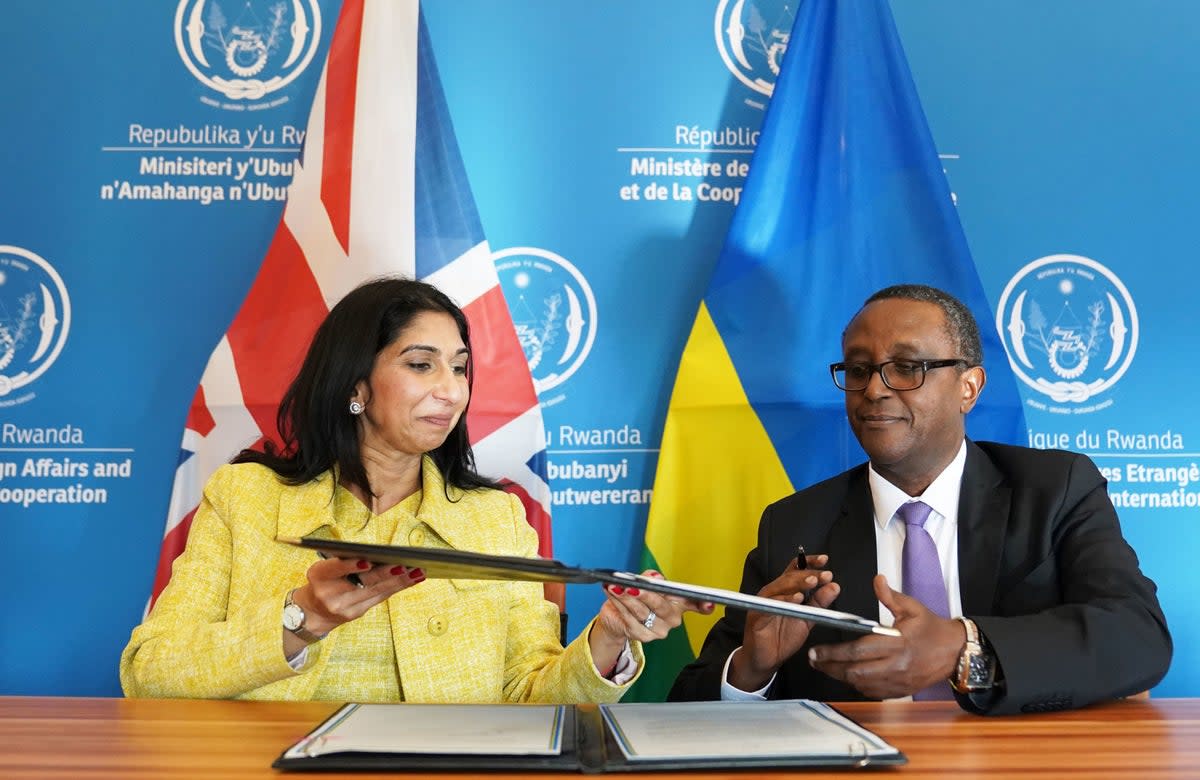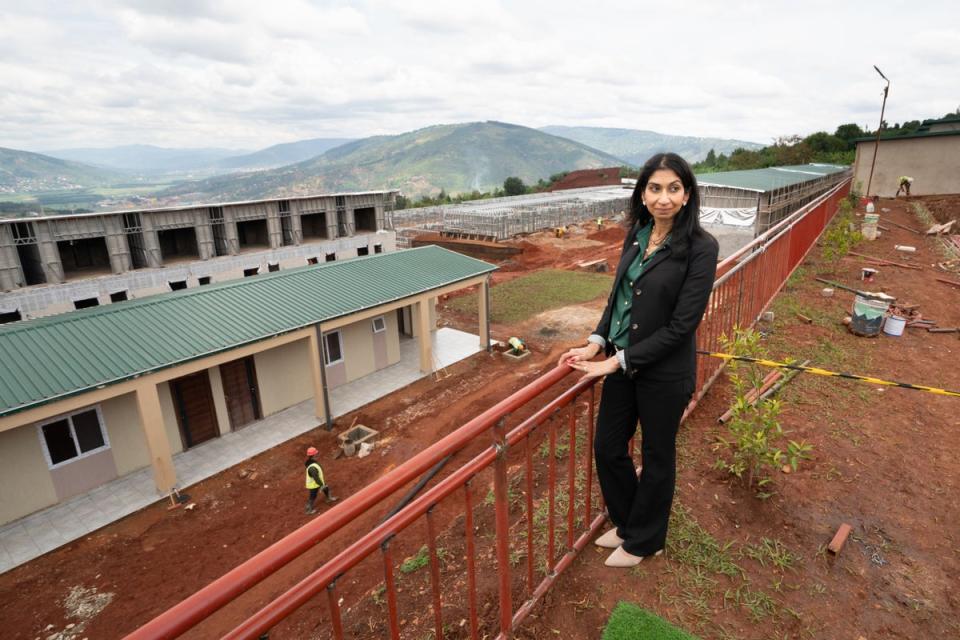Rwanda not safe for asylum seekers and judges wrong to rule scheme lawful, Court of Appeal told

Rwanda is not a safe country to receive asylum seekers from the UK and the High Court was wrong to declare the scheme lawful, a court has heard.
A barrister representing six men selected for deportation described the east African nation as “an authoritarian one-party state”, which “imprisons, tortures and murders those it considers its opponents” and perpetuates “police violence and legal repression”.
In the latest stage of the legal battle over the scheme, Raza Husain KC told the Court of Appeal that there was a risk that asylum seekers would be denied proper process after being deported, and that judges previously displayed “excessive deference” to promises made by the Rwandan government that were not backed up by evidence.
The appellants argue that the Home Office breached several legal duties in deciding that Rwanda was a safe country to receive refugees, and failed to properly investigate the outcome of a similar deal with Israel which operated from 2013 to 2018.
The court heard that asylum seekers sent from Tel Aviv were detained without the opportunity of claiming asylum, sometimes justified on the grounds of “security concerns”, then arrested for a lack of documentation.
Some asylum seekers disappeared, while others were smuggled to Uganda and some died while fleeing Rwanda and attempting to journey towards Libya.
Mr Husain said by last year, two people who had been transferred from Israel had still not had their asylum claims decided in Rwanda and were “living in limbo”.
The court heard that the situation asylum seekers found upon arrival in Rwanda was “completely different to what they had been promised”, but it has not been presented with documents showing what Paul Kagame’s government promised the Israeli government and whether any formal assurances were given.
In December, the High Court found: “There is no evidence that during its negotiations with the Rwandan government, the United Kingdom government sought to investigate either the terms of the Rwanda/Israel agreement or the way it had worked in practice.”
Judges found the position was not an “error of law” but the Court of Appeal was told that they had made a mistake, and that the Home Office was legally required to investigate.
Mr Husain also argued that the High Court made “errors in the approach to evidence”, and wrongly put “partisan” claims by the government of Rwanda on the same level as sworn documents from the UN Refugee Agency (UNHCR).
A witness statement presented to Monday’s hearing by the agency said that safeguards described in the agreement signed by Priti Patel in April 2022 “do not exist or have never been used”, including a formal complaints system and appeals to the High Court of Rwanda.
The UNHCR said it had never known authorities to treat asylum seekers in the ways promised and that its “serious capacity issues cannot be addressed within a short space of time”.
“Asylum seekers transferred to Rwanda are at serious risk of both direct and indirect refoulement and will not have access to fair and efficient asylum procedures, adequate standards of treatment or durable solutions, in line with the requirements set out in international refugee law,” its witness statement added.
In written submissions, the Home Office’s legal representatives said there were “clear and compelling reasons” why the British government believed Rwandan authorities would comply with their promises.
They argued that the previous arrangement between Israel and Rwanda was “irrelevant to the up-to-date assessment of the accessibility and functioning of Rwanda’s asylum system”, and involved “very different” financial arrangements.
But the appellants argued that the government’s position that Rwanda is a safe country for asylum seekers was “clearly based on an insufficient inquiry”.
Mr Husain said the Home Office had deliberately excluded the UNHCR during its consideration of the scheme because of its anticipated disapproval, and based its judgement on inadequate civil service reports based on two visits in early 2022.

An official review found that notes of interviews conducted with Rwandan officials “do not meet even the minimum standards of any primary research, let alone that used to inform crucial government evidence-based policy” and left “vital information gaps”.
The group of six asylum seekers are challenging the High Court’s ruling that the deal was lawful on eight grounds, including that it constitutes an unlawful “penalty” punishing refugees for using small boats.
Lawyers representing the Asylum Aid charity are separately arguing that the way people are selected for the scheme and given the opportunity to resist deportation is unlawful.
They argue that it was “obviously wrong in law” for the High Court to conclude that the government’s five-working day deadline for accessing lawyers, gathering evidence and preparing reports on why Rwanda would be unsafe for them was sufficient.
The Rwanda plan, along with the Illegal Migration Bill – which is due to return to the Commons on Wednesday – are part of Rishi Sunak’s pledge to stop small boat crossings.
But the prime minister told a parliamentary committee last month that no flights to Kigali would leave until legal challenges had been resolved.
The hearing before the Lord Chief Justice Lord Burnett, Sir Geoffrey Vos and Lord Justice Underhill is expected to conclude on Thursday, with a decision at a later date.

 Yahoo News
Yahoo News 
